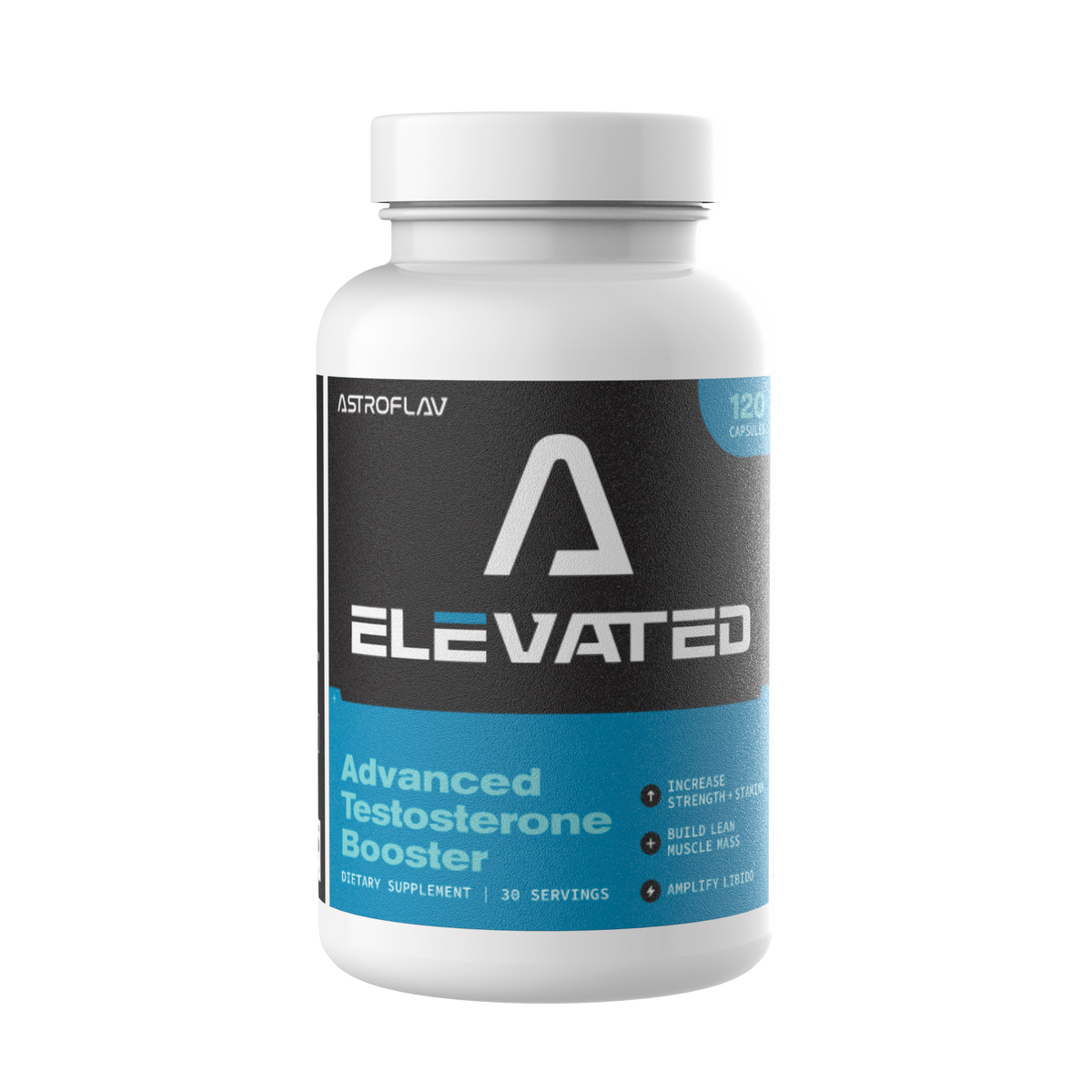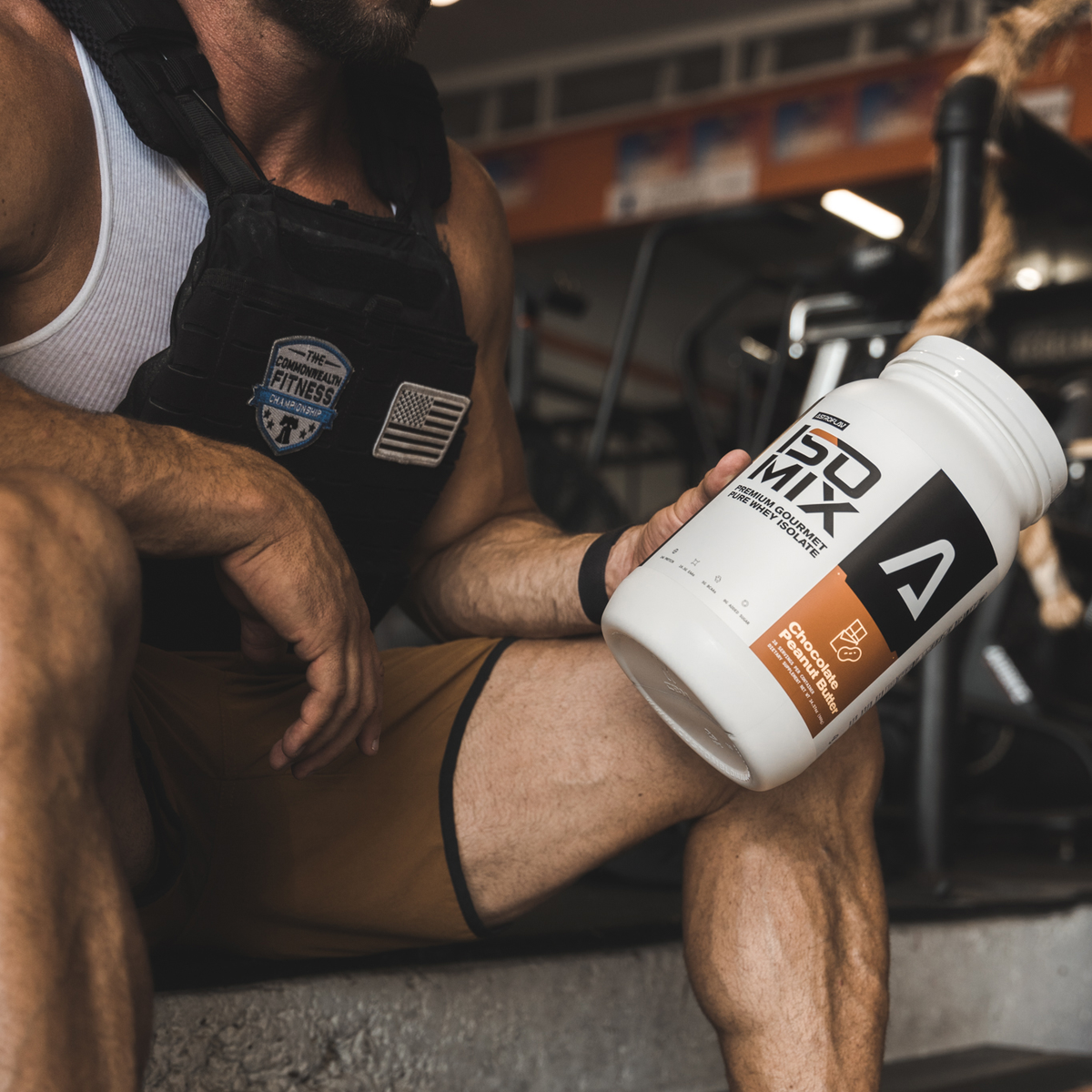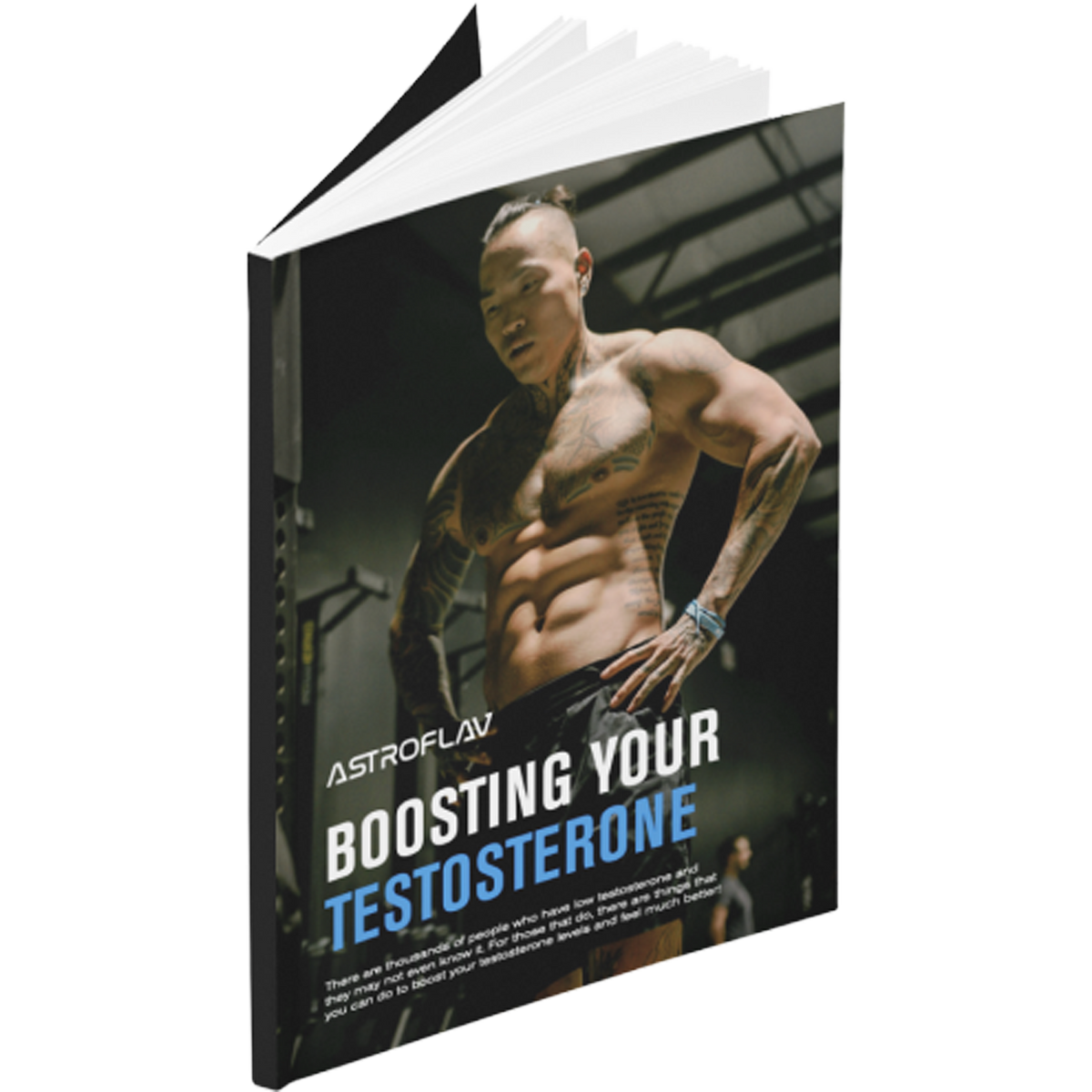
Creatine Gummies vs. Creatine Powder
Does your creatine gummy actually contain any creatine? Over the last year, creatine gummies were one of the top searched supplement on Amazon for purchase, but what consumers don't know is that these tasty gummies may not be all what they say they are. Are the convenience and flavors of gummies worth sacrificing the reliability and effectiveness of traditional powder forms? Today's article, we explore the pros and cons of each, aiming to provide clarity and insight into this ongoing debate. Keep scrolling to learn more!
What is Creatine & What Does it Do?
Creatine is a natural compound found in your body, made up of the amino acids L-arginine, glycine, and methionine. The scientific name "creatine monohydrate" is essentially creatine with one molecule of water attached to it (hence the "mono" in front of "hydrate").
Creatine is a naturally occurring compound found in small amounts in certain foods and produced by the body, primarily in the liver, kidneys, and pancreas. It plays a crucial role in energy metabolism, particularly during short bursts of intense physical activity.
When you consume creatine or produce it internally, it combines with phosphate molecules in the body to form phosphocreatine, a high-energy molecule stored in the muscle tissue. During activities like weightlifting, sprinting, or any other explosive movements, phosphocreatine rapidly donates its phosphate group to adenosine diphosphate (ADP), regenerating it into adenosine triphosphate (ATP), which is the primary energy currency of cells. This replenishment of ATP allows muscles to sustain short bursts of high-intensity activity.
Supplementation with creatine has been extensively studied in the realm of sports and exercise science. It's one of the most popular and well-researched dietary supplements, commonly used by athletes, bodybuilders, and fitness enthusiasts to enhance performance and support muscle growth. Interestingly so, creatine gummies have been a new, hot product within the supplement industry, but are they as effective as creatine powder supplements? Do they actually contain creatine? Keep scrolling to learn more!
Creatine Gummies: What's the Hype About?
Creatine gummies have emerged as a convenient and tasty alternative to traditional creatine powder supplements, sparking intrigue among fitness enthusiasts and athletes alike. The rise in popularity of creatine gummies can be attributed to their ease of consumption and portability, offering a convenient option for individuals seeking to enhance their athletic performance and muscle growth.
Unlike creatine powder, which requires mixing with water or other beverages, gummies provide a straightforward and palatable way to incorporate creatine into one's daily routine. Additionally, the appeal of gummies lies in their diverse flavor options, catering to a broader range of tastes compared to the relatively limited flavor choices of creatine powder.
While creatine gummies on the market continues to expand, it becomes increasingly important for consumers to prioritize transparency in labeling and adherence to stringent manufacturing standards to ensure optimal effectiveness and safety. It's no doubt these gummies offer undeniable convenience, but it's essential to carefully examine their efficacy and quality just like any other daily supplement you may be consuming.
How Effective Are Creatine Gummies Compared to Powders?
The debate over the effectiveness of creatine gummies versus creatine powder continues to captivate fitness enthusiasts and athletes alike. With the convenience and appeal of gummies, many have turned to these chewable supplements as an alternative to traditional powder forms.
However, recent reports from NOW Health Group's analysis has shed light on potential discrepancies in creatine gummy products. The study revealed inconsistencies in claimed creatine potency, raising concerns about the reliability of these formulations.
Additionally, creatine is stable and effective in powder form, but when emerged in water, it can convert to inactive creatinine. Low creatinine levels affect creatine levels in the body and often result in a person having low muscle mass or body weight. This makes the gummies a difficult and inaccurate form of creatine, suggesting a possible degradation within the gummies.
These findings indicate that creatine gummies may not be as effective as creatine powder in delivering the desired amount of creatine to the body. Therefore, individuals seeking the benefits of creatine supplementation may find more reliable results with traditional creatine powder formulations.
As the discussion unfolds, it's crucial for consumers to weigh the pros and cons carefully and make informed decisions based on their personal preferences and goals.
A Word on Gummy Manufacturing:
Gummy vitamins are created by combining various ingredients, including vitamins, minerals, flavors, and colors, with a gummy base. The gummy base is usually made up of gelatin, pectin, or agar. The manufacturing process is broken down into multiple complex steps that generally requires the attention and expertise of gummy vitamin contract manufacturers [3].
That said, testing for creatine content in a gummy is done with a specific technique called high performance liquid chromatography, or HPLC. This is an analytical technique to separate, identify, and quantify components in a mixture. It is the main chromatography technique used in most laboratories worldwide [2].
The recent analysis conducted by NOW Health Group has brought to light concerning discrepancies surrounding creatine gummies and their claimed potency. Despite the convenience and appeal of these chewable supplements, the findings suggest potential challenges within the manufacturing process, raising questions about the reliability of creatine gummy products.
Variations in creatine content and the presence of elevated creatinine levels underscore the need for greater examination and transparency in the production of these supplements. While creatine gummies offer a convenient alternative to traditional powder forms, consumers must be aware of these underlying discrepancies and prioritize informed decision-making when selecting supplements.
Benefits of Creatine Monohydrate Powder:
Taking a creatine supplement, particularly in powder form, offers several notable benefits for individuals engaged in strength training and high-intensity activities:
-
Enhanced Exercise Performance:
Creatine supplementation increases the body's stores of phosphocreatine, leading to improved strength, power, and overall athletic performance.
-
Increased Muscle Mass:
Creatine has been linked to greater muscle growth and hypertrophy, especially when combined with resistance training.
-
Faster Recovery:
Supplementing with creatine may reduce muscle damage and inflammation, facilitating quicker recovery between workouts and allowing for more frequent training sessions.
-
Improved ATP Production:
By replenishing ATP stores, creatine helps muscles maintain energy levels during short bursts of intense activity.
How to use creatine supplements:
As a dietary supplement, mix one serving of 5 grams (one scoop) into at least 16 ounces (500 ml) of water or suitable beverage and drink within 15 minutes. Consume one serving per day.
It's important to stay hydrated while taking creatine supplements and consult with a healthcare professional to determine the most appropriate dosage based on individual factors such as body weight, training intensity, and overall health status.

The Bottom Line:
The ongoing debate about creatine gummies versus creatine powder within the fitness world has been a hot topic, but there has been some interesting findings coming to the surface about the efficacy and value of this popular product. While creatine gummies are all about convenience and fun flavors, recent findings from NOW Health Group suggest they might not be as reliable as we thought.
The biggest concern we're finding is that these gummies are not consistent with their creatine content and many have been shown to contain high creatine levels. So, while these gummies are tasty and convenient, sticking to a standard creatine powder supplement might be the safer bet for getting the results you're looking for.
Keep an eye out for clear labeling and high-quality manufacturing to make sure you're getting the best bang for your buck!
RESOURCES
-
NutraIngredients-USA. (2024, March 1). NOW raises red flags after creatine gummy testing. Retrieved from https://www.nutraingredients-usa.com/Article/2024/03/01/NOW-raises-red-flags-after-creatine-gummy-testing#:~:text=NOW%20also%20analyzed%20creatinine%20content,meeting%20their%20claimed%20creatine%20strength.x
-
Koester (n.d.). What is HPLC? ChemistryViews. Retrieved from https://www.chemistryviews.org/details/education/9464911/What_is_HPLC/
-
Summit RX. (2023). The ultimate guide to gummy vitamin manufacturing. Summit RX. Retrieved from https://summitrxusa.com/blogs/blogs/the-ultimate-guide-to-gummy-vitamin-manufacturing



